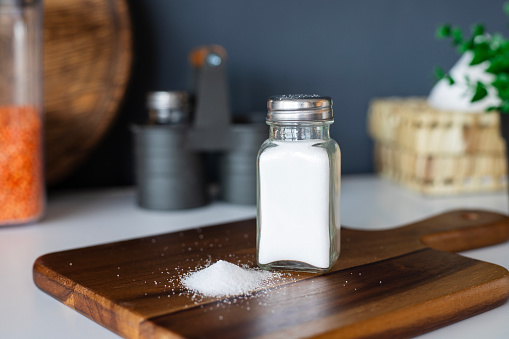Need to Cut Back on Sodium? Here are Some Substitutes to Consider

Has your healthcare provider told you that you need to cut back on sodium in your diet?
Older adults may need to cut back on sodium because excessive salt intake can significantly increase the risk of health issues that are more common with age, such as high blood pressure, heart disease, stroke, and kidney problems. As the body ages, it becomes less efficient at regulating fluid balance and blood pressure, making seniors more sensitive to the effects of sodium. High sodium levels can also contribute to fluid retention, leading to swelling in the legs or feet and putting added strain on the heart. Additionally, many older adults are on medications that may interact poorly with high sodium levels. Reducing sodium by limiting processed foods, choosing low-sodium options, and cooking with herbs and spices instead of salt can help protect cardiovascular health and support overall well-being in later life.
Older adults looking to reduce their sodium intake can consider a variety of salt substitutes to add flavor to food without compromising their health. Herbs and spices such as garlic, onion powder, basil, oregano, thyme, rosemary, and paprika can enhance taste naturally. Citrus juices like lemon or lime, as well as vinegar, add a tangy brightness to dishes that can reduce the need for salt. Salt-free seasoning blends, such as those labeled “no-salt” or “sodium-free,” are widely available and offer a convenient alternative. Potassium-based salt substitutes can also be used, but they should be approached with caution, especially for individuals with kidney issues or those taking certain medications, as too much potassium can be harmful. Consulting with a healthcare provider before making major dietary changes ensures that these substitutes are both safe and effective for maintaining flavor and health.
To read about other salt substitutes, from a story by AARP, CLICK HERE.
